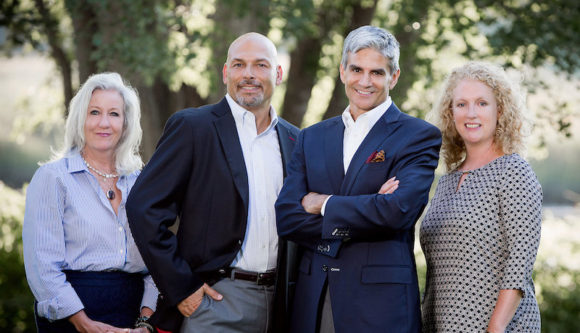By Thomas Britt
Women have come a long way in the past few decades when it comes to career opportunities and playing a significant role in every aspect of our communities. But even though women make up 50% of the workforce these days, (1) they face financial challenges not often faced by men. Women typically earn 81 cents of every dollar earned by men, (2) and they usually spend fewer years in the workplace because they may take time off work to raise children or take care of elderly parents. Because women generally live about 6-8 years longer than men, (3) this means women have fewer years to save a higher percentage of their income, so they can fund their longer retirement.
Doesn’t seem fair, right?
That’s why women need to be even more informed about their financial opportunities and how to maximize what they have. Gone are the days when husbands were the only ones in control of the family’s finances. Here are a few key principles all women should know about personal finance in order to succeed.
Stay on Top of Your Spending
To reach your financial goals, you need to track your spending. Even if you have a high net worth, you may be surprised at how much more you could save if you cut unnecessary purchases. It could potentially equate to thousands more by the time you retire.
A recent study shows that only 23% of women make the primary decisions about their family’s day-to-day finances. That number drops down to 18% when it comes to making decisions about longer-term retirement and investment planning. (4)
If you’ve left budgeting up to your spouse or partner until now, set aside one night a week to go over the details and get on the same page. It could save you a lot of heartache and frustration down the road should something ever happen to your spouse or your relationship.
Find More Ways to Save
Once your budget is solid, start finding ways to save more money. There are typically two ways to do this: decrease spending or increase income. The most effective way is a combination of both.
Small everyday purchases add up to a large amount of money over time. Think about ways you can decrease spending without depriving yourself. Could you make your own coffee throughout the week instead of grabbing a cup on your way into the office? If you want to increase income, could you ask for a raise at your current job, rent out your spare bedroom, or start a side job?
Whatever you do, make sure you take advantage of your retirement plan. Whether it’s an employer-sponsored plan or a personal plan, contribute as much as you can—especially if you’re near retirement. You’ll thank yourself later.
Invest with Confidence
Investing is a great way for women to close the gender pay gap and save extra money for retirement. Did you know women typically have a 0.4% higher return on investments than men? (5) It’s true. But women are also more likely to keep their money in a low-risk savings account than in investments because their earned dollars are more precious to them. Breaking this cycle and having a strong investment portfolio gets you one step closer to reaching your financial goals—and living your dream life in retirement.
Find a Trusted Partner
Given the right tools and education, women can succeed in reaching every financial goal they set for themselves. It may be overwhelming at first, but the more you know about investing and the more you do it, the easier it becomes. The best way to gain momentum in reaching your financial goals is to seek help from a professional.
At Benchmark Wealth Management, we can help you build a financial plan and investment portfolio that works for you. Want to learn more? Easily schedule an introductory consultation by contacting us at 860.434.6890 or emailing me at thomas.britt@bwmllc.net to arrange a consultation.
About Thomas
Thomas J. Britt is managing director of Benchmark Wealth Management, LLC, with 20 years of experience in the financial industry. He specializes in executive financial planning, retirement planning, investing, as well as the management of trusts and endowments. Thomas is a CERTIFIED FINANCIAL PLANNER™ (CFP®) professional and holds the Master Planner Advanced StudiesSM (MPAS®), Certified Investment Management Analyst (CIMA®), and Chartered Retirement Planning Counselor (CRPC®) designations. He earned a Bachelor of Science in Finance from the University of New Haven, an MBA in financial technology from Rensselaer Polytechnic Institute, and a Master of Science in Personal Financial Planning from the College for Financial Planning. He is also a proud veteran of the United States Navy Submarine Force. Learn more about Tom by connecting with him on LinkedIn.
Additional information, including management fees and expenses, is provided on our Form ADV Part 2, available upon request or at the SEC’s Investment Advisor Public Disclosure site, www.adviserinfo.sec.gov/firm/160192
Securities offered through Private Client Services, Member FINRA, SIPC in the following states: AZ, CA, CT, FL, KY, MA, ME, MI, MN, NH, NJ, NY, RI, TX. (Securities-related services may not be provided to individuals residing in any state not previously listed) Advisory services offered through Benchmark Wealth Management, LLC a Registered Investment Advisor. Private Client Services is an unaffiliated entity.
_____________
(1) https://www.washingtonpost.com/business/2020/01/10/january-2020-jobs-report/
(2) https://www.payscale.com/data/gender-pay-gap
(3) https://www.who.int/gho/women_and_health/mortality/situation_trends_life_expectancy/en/
(4) https://www.fidelity.com/bin-public/060_www_fidelity_com/documents/pr/couples-fact-sheet.pdf











